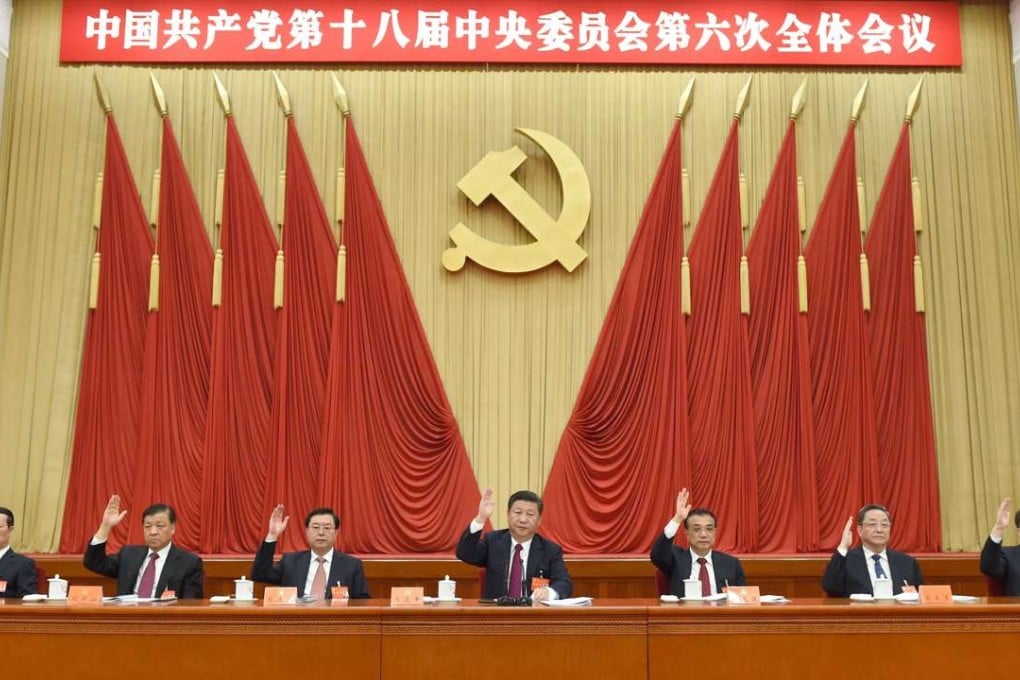Lack of transparency remains core problem for Communist Party
Historic changes introduced by the sixth plenum of the Central Committee give Xi Jinping a stronger mandate to address social, political and economic issues

The sixth plenum of the Central Committee has anointed President Xi Jinping (習近平) as a core leader of the Communist Party, elevating him to the same status as Mao Zedong (毛澤東), Deng Xiaoping (鄧小平) and Jiang Zemin (江澤民). At the same time as enhancing the legitimacy of his power, party leaders approved a detailed set of rules of conduct for cadres including their family affairs, to fight graft that threatens the legitimacy of the party’s rule. Both historic changes boost Xi’s personal mandate to push through economic reforms frustrated by factions with vested interests.
In the official communiqué issued after the plenum, the two words he xin, or the core (of party leadership), stood out. Late paramount leader Deng coined the word “core” to bolster Jiang’s authority when he needed a strong leader to succeed him. Xi’s claim on it is testament to his strong political will and skills. Internally, it expands his power ahead of a key congress next autumn, enhancing his ability to promote supporters to senior positions and consolidate his authority as the head of the party, state, military and – increasingly – China’s economy.
He will need it to overcome resistance to reform that flourished under the cover of sustained economic growth. Factionally aligned groups took full advantage to advance their interests without rigorous scrutiny or hard questions being asked. Calls for showcase political reforms that might have made a difference by example, such as more transparency among senior leaders about the financial and business interests of family and friends, quickly ended in the too-hard basket. Attempts at economic reform by consensus foundered on conflict of interest.
Within a day of the plenum, the party foreshadowed 160 rules governing senior cadres’ political life, with a spokesman saying they must maintain discipline over family and associates and implement a system for internal declaration of assets. Hopefully this signals a sustained, institutionalised anti-corruption regime – untainted by perceptions of power struggles and rivalry – that clears the way for overdue economic reforms to address slowing growth and, eventually, for political reforms.
That said, there are legitimate concerns about the concentration of power and how the new rules are implemented. They call on ordinary members to exercise their rights to supervise senior officials and make it clear unchecked power and unsupervised special party members are not allowed. The prevailing secrecy and opacity in party affairs are unhelpful here and the party needs to address the need for more transparency.